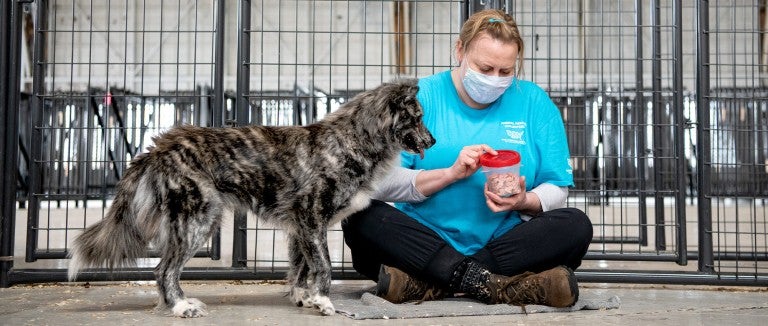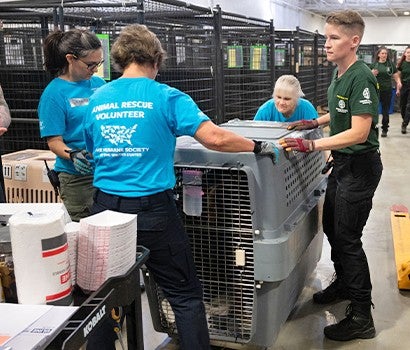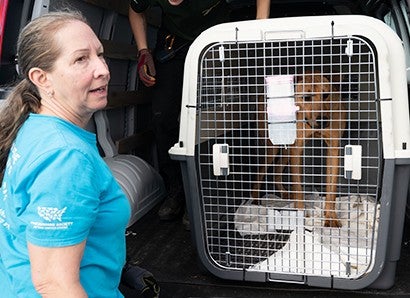About our volunteers
Animal rescue volunteers (ARVs) work with our Animal Rescue Team to help save animals who are victims of illegal animal cruelty and disasters. When we respond—whether to a hurricane, large-scale neglect case, dogfighting or commercial breeding operation—animal rescue volunteers travel from all over the U.S. and Canada to assist in the ongoing care of dogs, cats and other animals who have been rescued from harm.
Those volunteers help provide care to animals in our emergency shelters or assist with distributing supplies and providing other support to pets and other animals in impacted communities. Animal rescue volunteers come from all walks of life, generously giving their time to apply their skills and experience in response to animals in need. From animal handling and cage cleaning to administrative tasks, the work of animal rescue volunteers is the true core of the HSUS’s mission to save animals.
Team location
Animal rescue volunteers (ARVs) are called to respond in different U.S. locations as needed. Since 2020, many of our volunteers have deployed to our animal care and rehabilitation center in Maryland.


